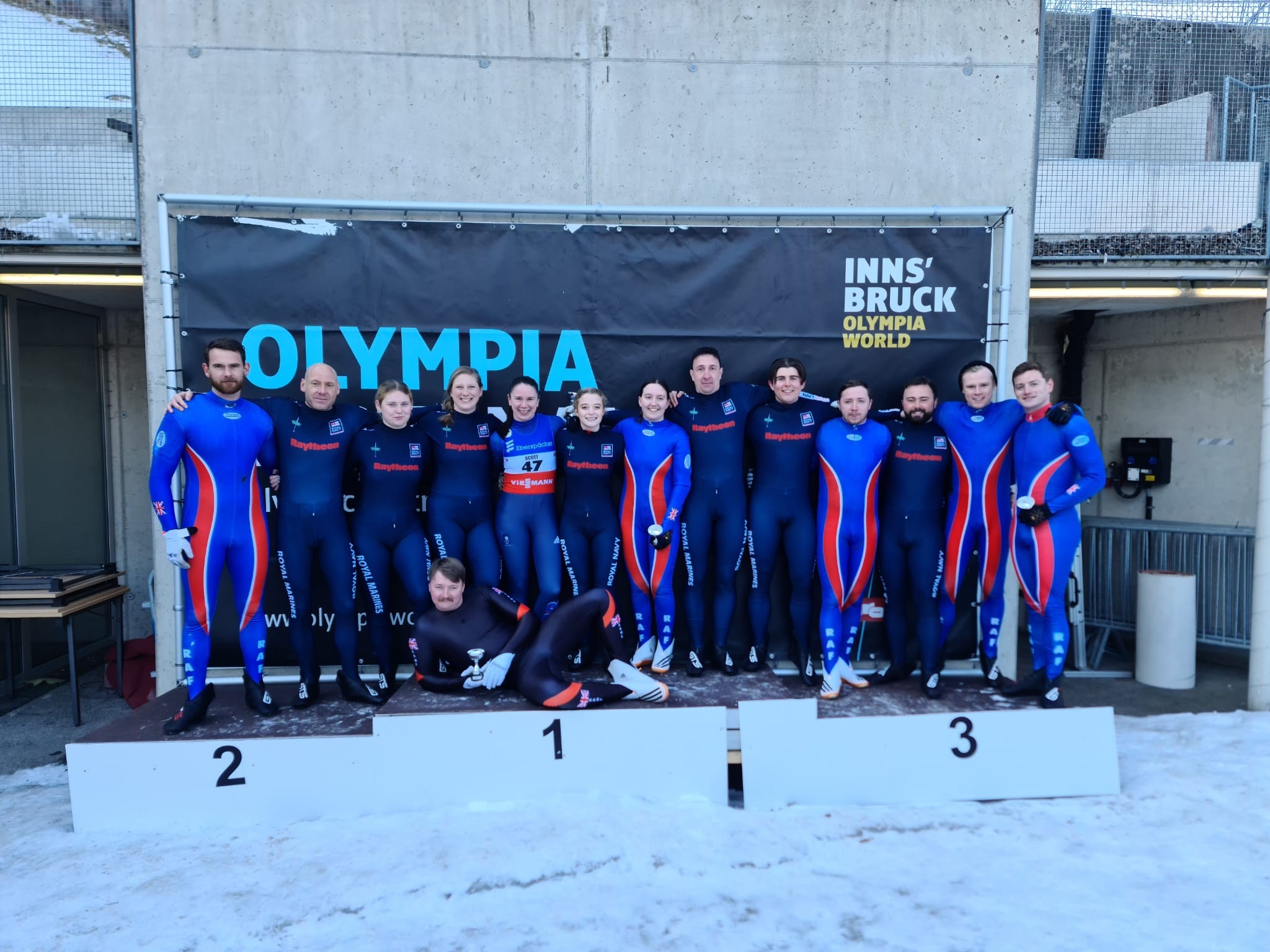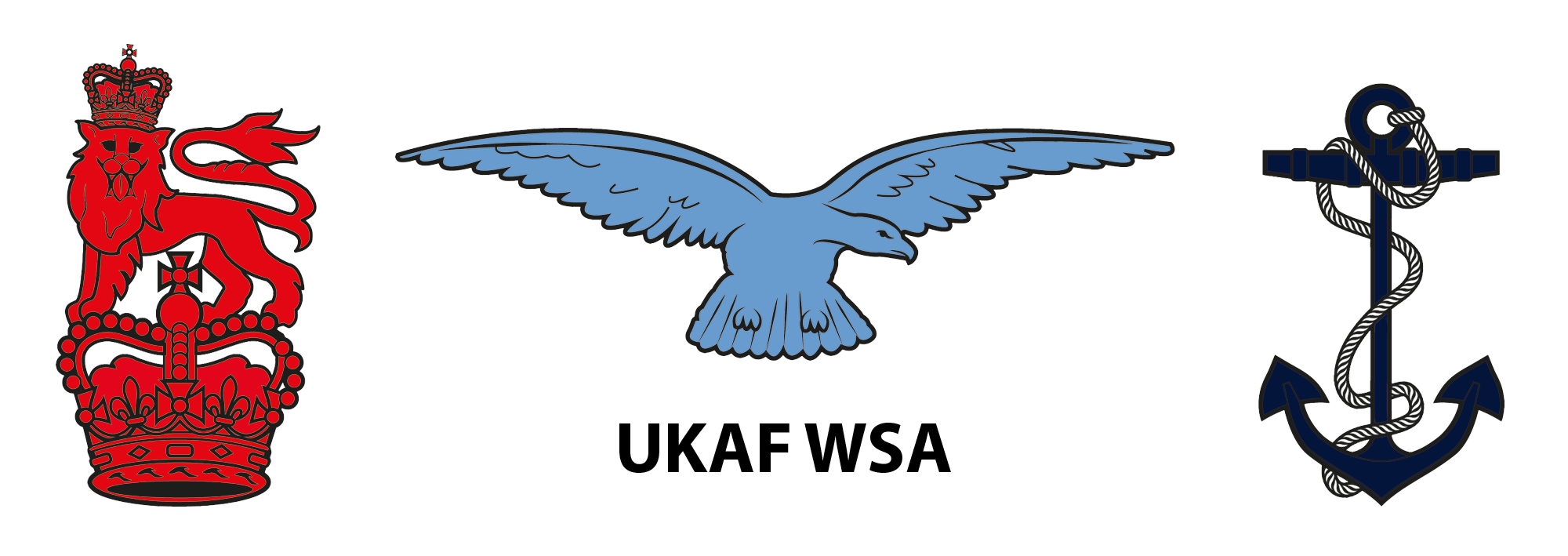2023 – A Season Recap:
(Cdr Ed Rolls has been on Advanced Command and Staff Course for the entirety of this season; many of the words are courtesy of Lt Dan Wrigglesworth RN for which he has my thanks.)
This year’s Luge season started in January at the location of last year’s competition, Igls, Austria. As is tradition, it took the form of two one-week novice camps, hosted by the Army and with the Royal Nay taking part, while the RAF ran their own events. As has been mentioned several times by our novice Lugers, Igls is a great track to learn on, and despite having the potential to bite, it has several starting points available that slowly build on difficulty and speed, allowing the chance to progress at an even pace, giving the slider plenty of opportunity to learn the nuances of luge sled control.
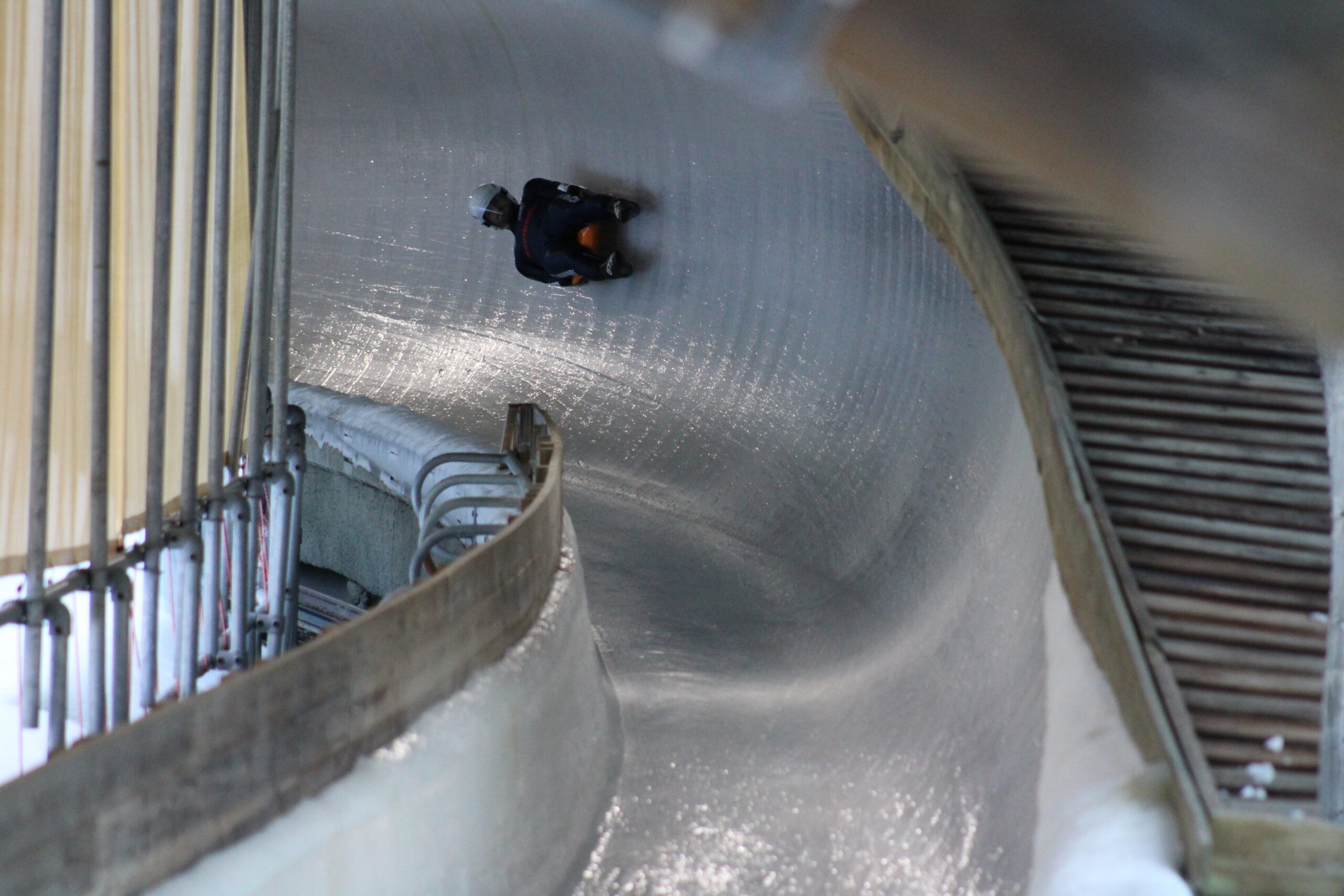
Following on from the novice camp, it was time for the Single Service and Inter-Service Championships, this season held in Lillehammer, Norway. Athletes travelled from across the globe to be able to participate, and thankfully most airport arrivals were timed nicely to get everyone to the track in good time. Following a brief period of acclimatisation and track walking, training began in earnest. As was mentioned in last year’s report, the skill-fade from several seasons away from sliding has meant that for many, this was a challenging and slightly bruising re-introduction to the discipline!
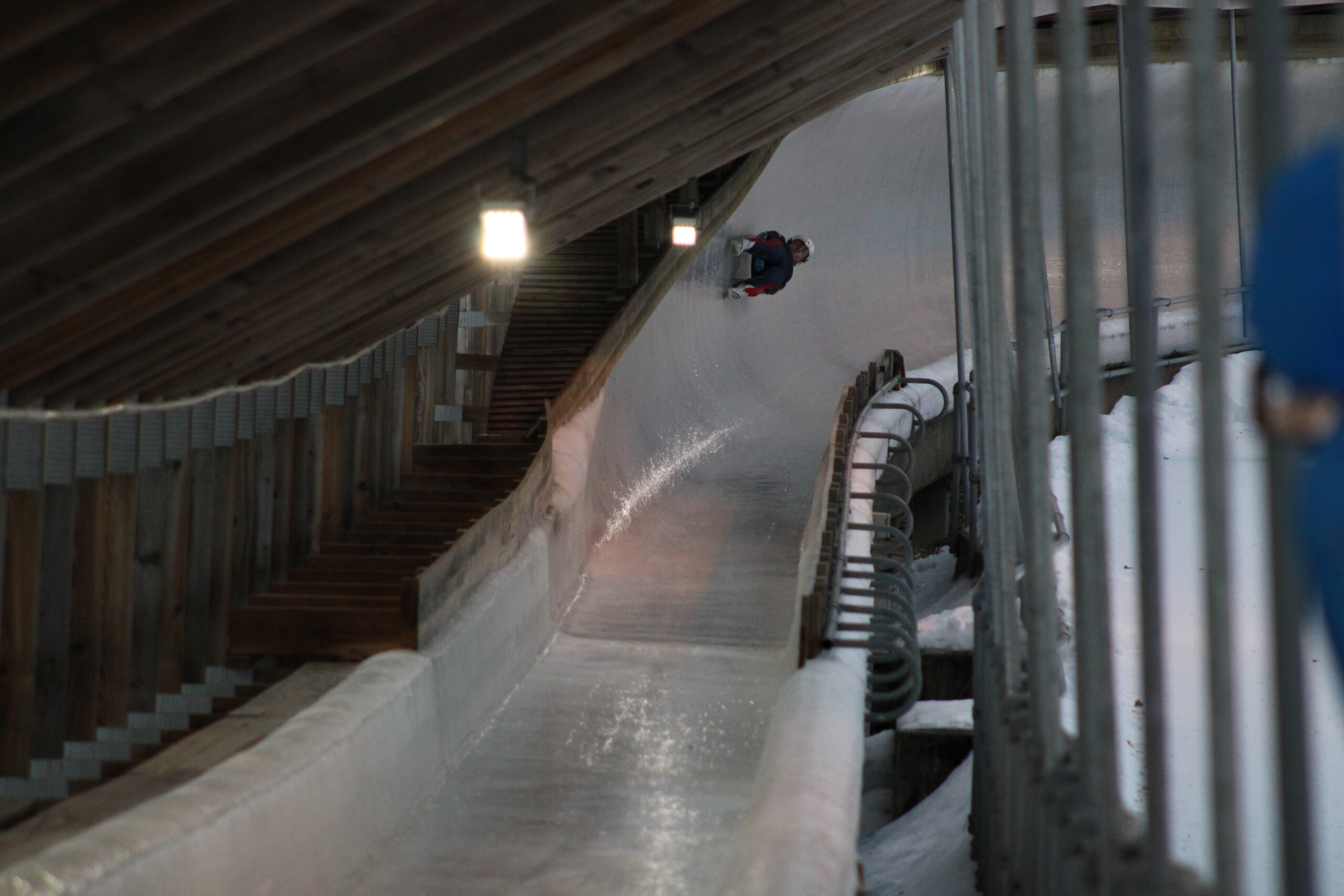
All three Services fielded strong teams of sliders, expertly tutored (as ever) by the ex-Olympian civilian coach, Mike Howard. There was time to walk down to each section of the track, analysing the strengths and weaknesses from the day before and looking at the optimum lines in and out of the corners, hopefully identifying steering points – although this is tricky at 60mph. There was definitely some nervous excitement from the athletes prior to training, but once started, the nerves turned to steely determination to keep improving.
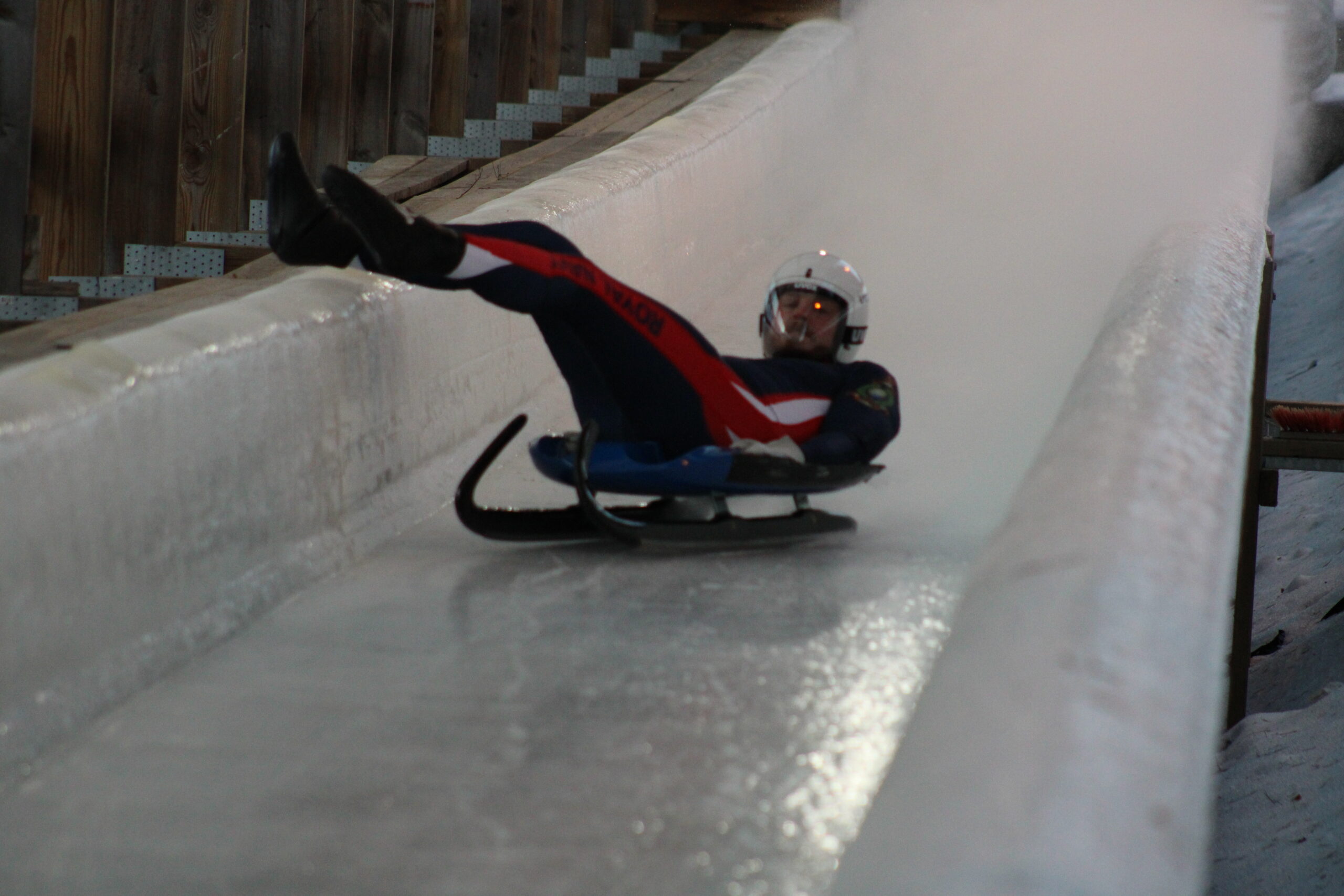
With training runs out of the way, the Inter Service Ice Championships were held on the final Friday of the fortnight. As race day arrived, morale amongst the teams was high, with plenty of inter-service rivalry. The format this year was to field a team of five sliders, with the top four times to count towards the grand total. Unfortunately, the RN champ crashed out on his first run and was unable to regain control of his sled, but all sliders, regardless of service, rallied together and completed their runs, with some spectacular regains from near bail-out scenarios. The vast experience of both the Army and RAF teams came to the fore, with the final results:
RAF – gold,
Army – silver,
RN – bronze.
Individual Men
1st Sgt John-Paul Kibble. RAF
2nd Cpl Steve Webb. Army
3rd Flt Lt Scott Steele RAF
Individual Women
1st Sgt Dani Scott Army
2nd AB Kaliska Clarke RN
3rd AS1(T) Alisa Dermidy RA
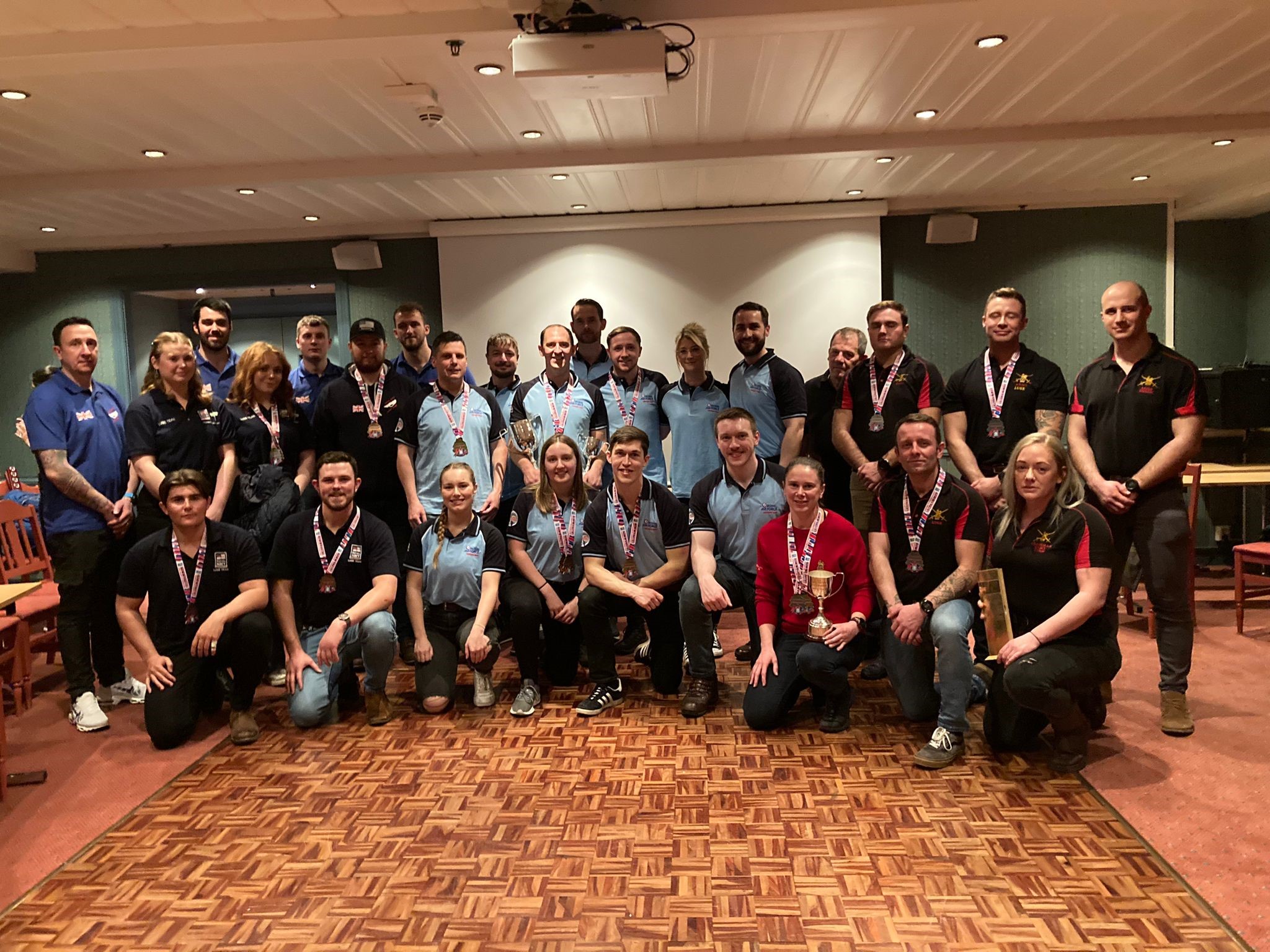
This has proved to be a successful and rejuvenating year. For all three services, there have been changes of faces, key roles, and perhaps most importantly, a healthy crop of new sliders coming through, all of whom have big plans for the new season. The Army and RAF already have mature training organisations, and the good news is that for the first time, there are plans for an RN grassroots camp in the summer, with their own novice camp towards the end of the year. With fair seas and a following wind, there is also the intention to hold next season’s Inter Services at St Moritz – a track that very few of the sliders from any of the services have been to before. This should be a great leveller, and I look forward to reporting back to you with the results next year.
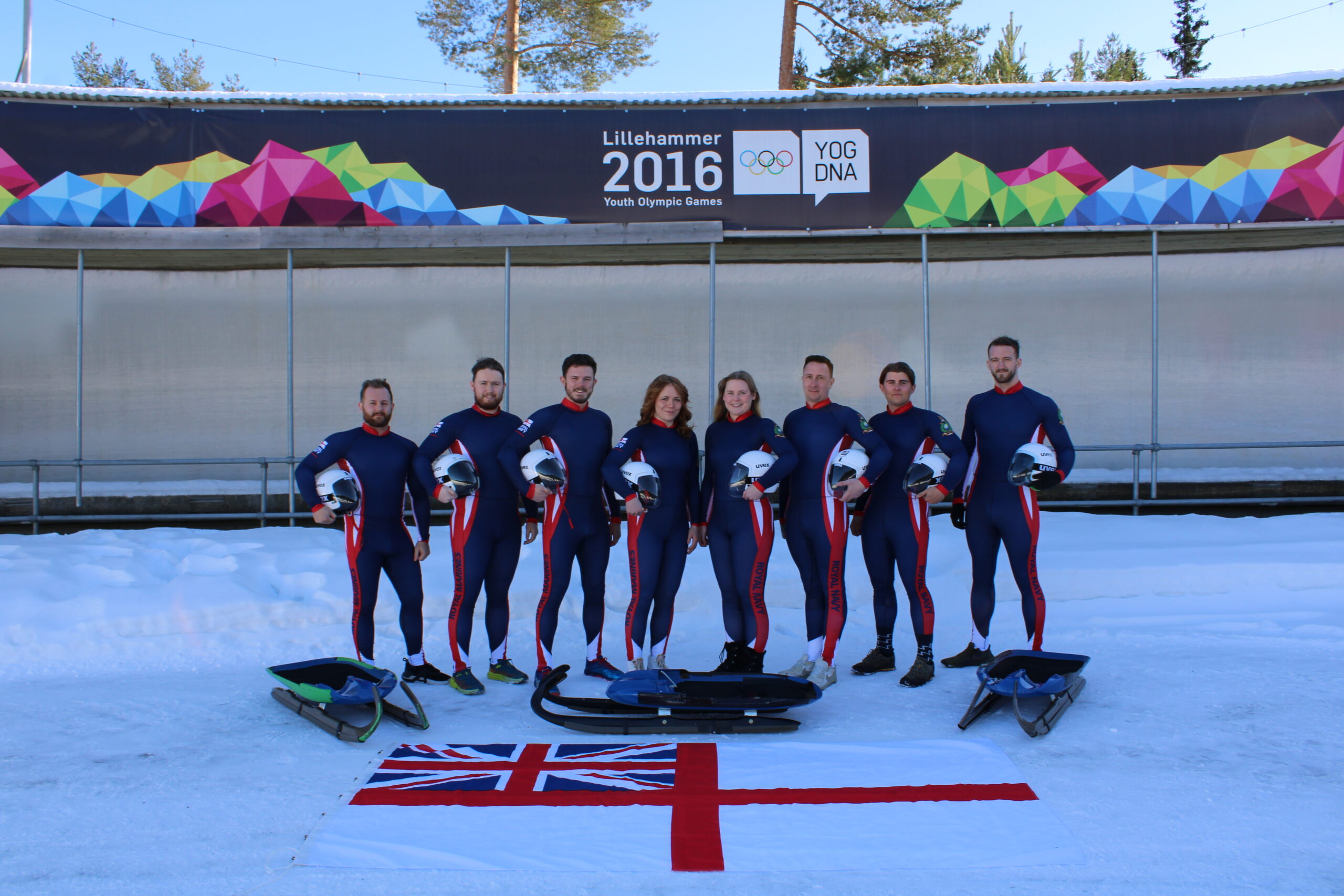
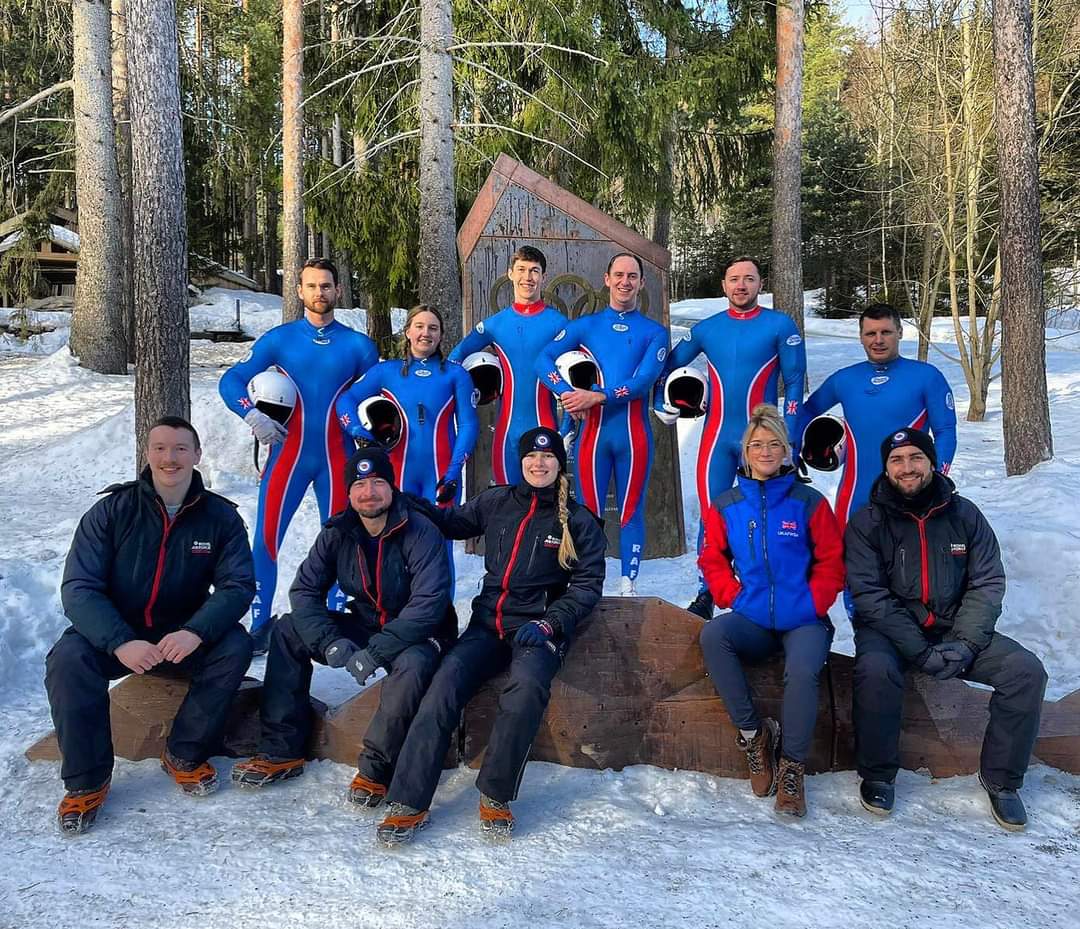
2022
This season was a welcome return to sliding after a few fallow years of lockdowns and grudging disappointment. But as the saying goes, every cloud has a silver lining, and while there was not the chance to compete last year, there was at least an opportunity to check, maintain and even acquire some new equipment. Since 2020, the Army have relocated their store from Ilford to its new (and hopefully permanent) home in Bicester, and excitingly the Navy have managed to fund, design and construct a practice start ramp for the use of all three services. Previously, there have been no UK-based training facilities for ramp starts for Luge: this has meant that training for those in the UK has been difficult, and often has relied on just two weeks’ worth of novice Ice Camps and maybe, deployments permitting, an occasional week ahead of the Inter Services Competitions.
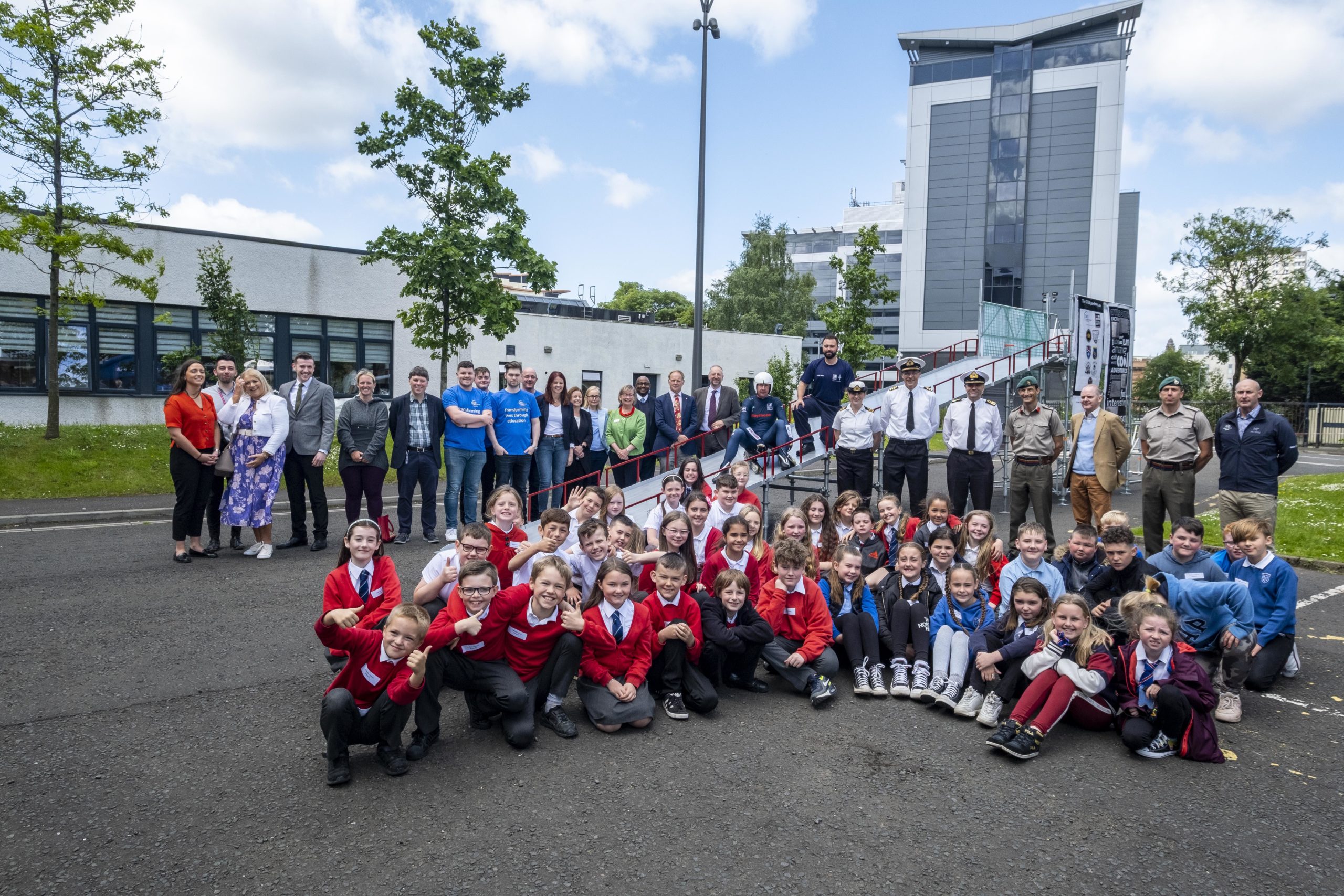
The creation of this ramp at Glasgow Caledonian University will enable Grassroots sports events and summer training camps to be able to recruit more athletes and develop existing members’ starting skills and sled handling. These summer camps will be tri-Service events, and will allow teams to share coaching experience and to build on a base level of knowledge in general sled work. It will also improve Luge-specific physical strength and conditioning to benefit all athletes all year round. Currently, the UK Armed Forces are the only recognised pathway into GB representation so, by increasing numbers involved and promoting the sport throughout the year, the plan is to create better opportunities to increase the number of athletes in the GB programme in the future. This project has been a labour of love, and I must give my thanks and single out the hard work and leadership of Lt Cdr Emma Miles for bringing the ramp to fruition.
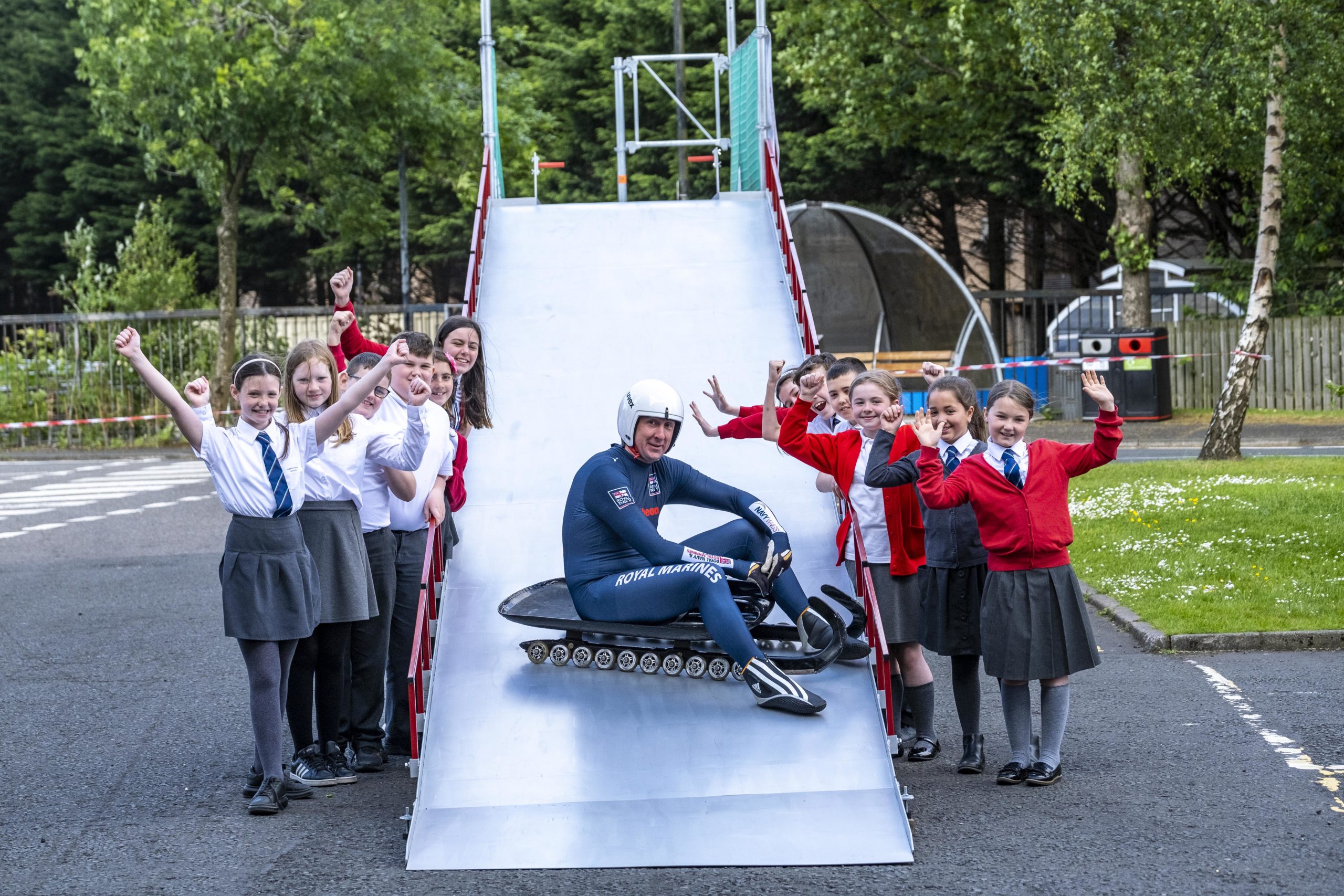
In terms of sliding activity, the Army had planned a full but condensed season consisting of around four weeks’ worth of sliding, but between Austrian lockdowns and travel restrictions they fell by the wayside, one-by-one. Similarly for the Royal Navy, their planned attendance at some of the Army events also fell through, and the RAF managed a fraction more success and time on the ice with a week’s novice camp in La Plagne, France. Happily, in the end we were able to hold a Combined Services’ Festival of Ice in Igls, Austria – and given the skill fade over the last two years, this was deliberately designed not to be an Inter-Services Ice Champs, but to manage a more measured and constructive rehabilitation into the wonderful world of Olympic Luge.
Across all three services, teams decided to invite predominately novices to the event to build for the future, and this gave the opportunity to introduce new athletes to the sport. At Igls, sliders commenced training from Kurve 10, gradually moving up to Kinderstart and then on to Jugendstart as the fortnight progressed, with some even making it to the Ladies’ Start. Nevertheless, some spent most of their laufs seemingly trying to find out what every bit of wall on the track felt like without a sled! Happily though it was an injury free event, with some notable performances.
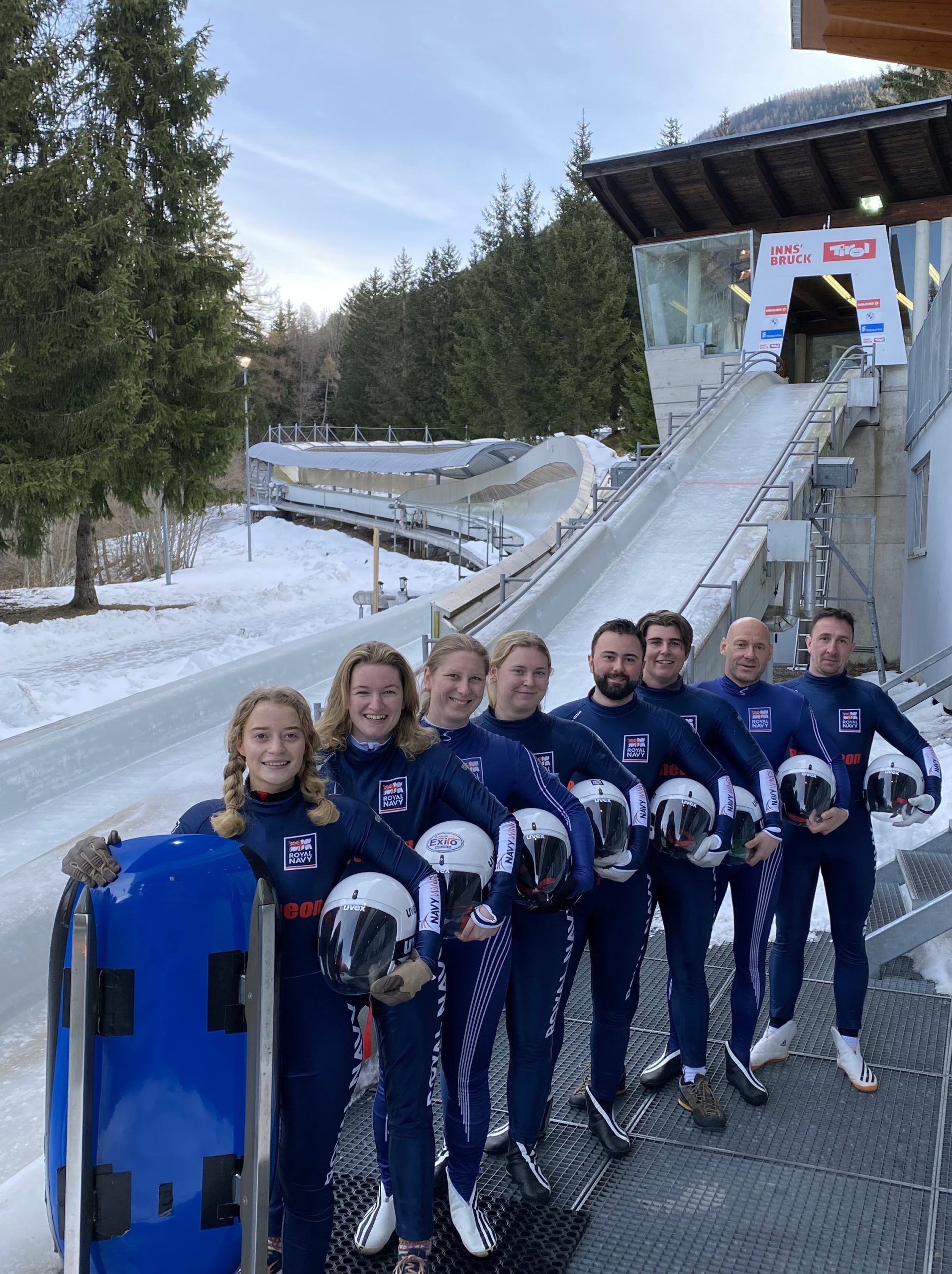
It was also the largest Royal Navy turnout in many years, including three Reservists and four female sliders. Having an adapted event at the end of the Festival introduced elements of competitive spirit, but without the pressure of a full-blown Inter Services final: no team trophies were awarded this season. That said, in the Novice event (not a competition!), the Royal Navy’s novice sliders finished 1st and 2nd, with the RAF in 3rd. For the Senior event, Sgt Dani Scott comfortably threw down a couple of laufs that the rest of the sliders never stood a chance against. The Army finished 1st and 2nd, with RAF in 3rd. It was great to see that all the teams were very enthusiastic and put in strong performances all round.
It was perhaps not the full season we had all hoped for, but it was a significant achievement to have built the start ramp for use in earnest this summer, and to be able to run the Festival. The best was made of what we had, and all were glad just to be back on the ice trying to remember how to Luge. And all while having an awesome time too!
